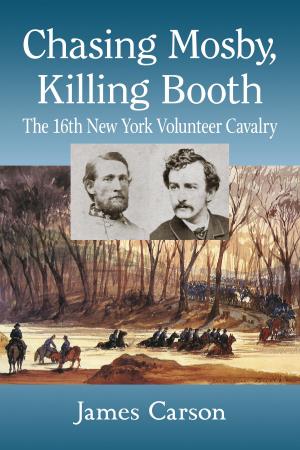Merchant Marine Survivors of World War II
Oral Histories of Cargo Carrying Under Fire
Nonfiction, Reference & Language, Transportation, Ships & Shipbuilding, History, Military, World War II| Author: | Michael Gillen | ISBN: | 9781476618876 |
| Publisher: | McFarland & Company, Inc., Publishers | Publication: | December 17, 2014 |
| Imprint: | Language: | English |
| Author: | Michael Gillen |
| ISBN: | 9781476618876 |
| Publisher: | McFarland & Company, Inc., Publishers |
| Publication: | December 17, 2014 |
| Imprint: | |
| Language: | English |
World War II could not have been won without the U.S. Merchant Marine. Crewed by civilian seamen in peacetime and carrying much of the nation‘s ocean-borne commerce, the Merchant Marine became the “fourth arm of defense” in wartime, providing vital support for beachheads in all theaters of operation. Twenty World War II Merchant Marine veterans are featured in this oral history. Most had at least one ship torpedoed, bombed, shelled or mined out from under them—some of them two. Some became prisoners of the Japanese for the duration of the war, working on the infamous River Kwai Bridge. Many spent time on lifeboats or flimsy rafts under harsh conditions; one—Donald Zubrod—endured 42 days in a lifeboat with several others before their eventual rescue, close to death. American merchant mariners suffered a casualty rate that was a close second to the Marine Corps during the war.
World War II could not have been won without the U.S. Merchant Marine. Crewed by civilian seamen in peacetime and carrying much of the nation‘s ocean-borne commerce, the Merchant Marine became the “fourth arm of defense” in wartime, providing vital support for beachheads in all theaters of operation. Twenty World War II Merchant Marine veterans are featured in this oral history. Most had at least one ship torpedoed, bombed, shelled or mined out from under them—some of them two. Some became prisoners of the Japanese for the duration of the war, working on the infamous River Kwai Bridge. Many spent time on lifeboats or flimsy rafts under harsh conditions; one—Donald Zubrod—endured 42 days in a lifeboat with several others before their eventual rescue, close to death. American merchant mariners suffered a casualty rate that was a close second to the Marine Corps during the war.















